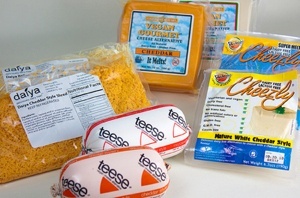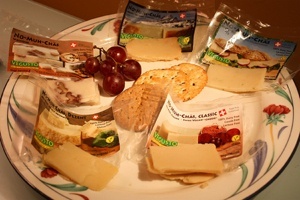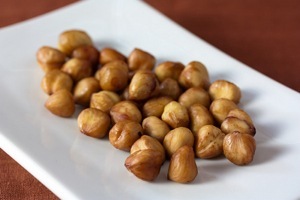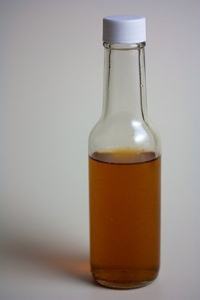The Problem with Palm Oil
0
Comments (31)
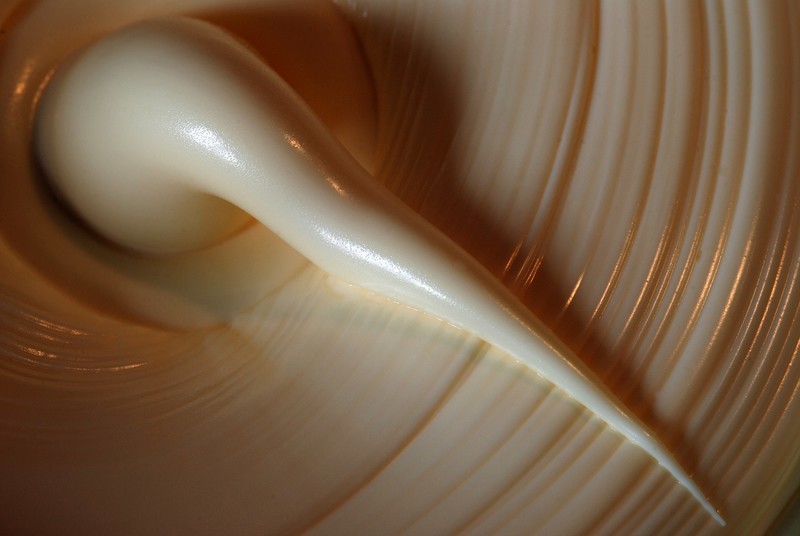
II love baking with vegan margarines like Earth Balance because they taste almost as good as butter and contain no hydrogenated oils. Hydrogenated oils are oils where hydrogen is forced into oil at high pressure. This chemically changes the unsaturated fatty acids into saturated ones. The benefit of this is that the oil is solid at room temperature and has an extended shelf life. The drawback of this is that trans fats are created during this process. In the 1980's food scientists began to notice adverse health affects associated with trans fat intake. This finding has led to a disaster in the food industry as food processors scramble to re-engineer their food to forgo hydrogenated oils but allow them to retain their flavor, shelf life, consistency and profit margins.
The Rebirth of Margarine
The first and arguably best margarine to come out of one of the biggest health miscalculations in the history of food is Earth Balance margarine. It consists of a blend of oils including palm oil, which is already solid at room temperature, hence not requiring the hydrogenation process. The people at Earth Balance didn't stop there though, they also made their margarine one of the best tasting margarines in the business. Due to this, it's regarded as the gold standard butter alternative for vegan baking.It should be noted that vegan shortening went through this rebirth at the same time margarine did with both Earth Balance and Spectrum Naturals leading the way several years ago. Most non-hydrogenated vegan vegetable shortening on the market is 100% palm oil derived. I've created a non-palm oil derived margarine called simply Vegan Butter and a non-palm oil derived Vegan Shortening to get around the palm oil issues and to empower vegan bakers with more control over the flavor profile of their recipes.
Other Good fats for Vegan Baking
Baked vegan goods like croissants, shortbread cookies and flaky pie crusts require margarine for best results but there are other things like cakes, muffins and cookies that do perfectly fine with other fats like canola oil. On some occasions, it's desirable to have an oil that's extremely solid at room temperature for things like brownies and other bars. In these instances, coconut oil works extremely well because it's similar to palm oil in that it doesn't require hydrogenation to be solid at room temperature.Tropical oils like palm oil and coconut oil have done a great job filling the void in the last decade as more people who turn to vegan baking look for fats that mimic butter. There is one ever increasing problem however.
Where does Palm Oil Come From?
As the world population increasingly turns to non-hydrogenated solutions for their plant-based fats, there is more demand for the plants that make them. Palm trees make palm oil, with 85% of it coming from Malaysia in 2004. Worldwide demand for palm oil is skyrocketing. According to the Center for Science in the Public Interest, palm oil is forecast to be the world’s most produced and internationally traded edible oils by 2012 (pdf link). As more land is required for palm plantations in order to meet demand, rainforests are being cleared in Southeast Asia which is leading to disruptions in wildlife. According to CSPI, "Five mammals exemplify the impending disaster: the Sumatran tiger, Sumatran and Bornean orangutans, Asian elephant, and Sumatran rhinoceros. Each of those species is endangered, with the three eponymous Sumatran species critically endangered. They once flourished in precisely those areas where rainforests have since been cleared for oil palm." According to the UN, the orangutan could be extinct in five years as a result of habitat loss. According to the New York Times, palm oil production is turning from being a green alternative into an environmental nightmare.How can this be possible? You mean the most effective vegan baking butter alternatives actually cause more animal suffering? How bitterly ironic this problem is. Are we supposed to use canola oil for everything now and just deal with never having croissants again? What are the alternatives to the alternatives? Unfortunately, this is not an easy question to answer. There are institutions like the non-profit Roundtable on Sustainable Palm Oil which is working hard to ensure that palm oil is sustainably produced. Hopefully the companies that make our favorite butter alternatives (I'm looking at you Earth Balance) will adopt policies where they only buy palm oil from sustainable sources. Thankfully, Spectrum Organics has taken these steps and currently sources their palm oil from a sustainable certified family owned company called DAABON Organic.
But this doesn't put soy oil in the clear. The United States still makes more soybean oil than any other country but Brazil and even Argentina are rapidly gaining and may surpass US soy production in several years. There's concern that this will lead to rapid rainforest depletion as well.
At this point our options are:
Coconut Oil
As of this writing coconut oil does not appear to suffer from the same level of sustainability issues as palm oil production does. This will probably change in time as it looks like any plant that's being grown in large quantities in countries with large amounts of rainforest is going to lead to rainforest destruction if sustainable policies are not enacted.Canola oil
92% of canola oil is produced in the United States as of 2007. Since there are very few rainforests in the United States, there's a pretty good chance that using canola oil will result in no rainforest destruction. I recommend organic canola oil for maximum sustainability. Since canola oil isn't solid at room temperature, it's no drop in replacement for our favorite margarines.Sustainably Produced Palm Oil-based Products
There are people who don't believe palm oil should be sustainably certified because they feel that it's use is going to lead to deforestation anyway. I don't believe this is the right approach because banning the use of a high-demand product to the world market is impossibly unrealistic and far less effective as enacting sustainability standards. Is the world community supposed to just throw up it's hands and forget that palm oil exists? Good luck with that. In the meantime, organizations like the Rountdable on Sustainable Palm Oil are working to promote sustainably harvested palm oil so producers abide by standards so it has as little impact on the environment as possible. The video below describes how RSPO does this.In the meantime, we can use products that use sustainable palm oil like Spectrum Organics Shortening. In regards to margarine, we can urge our favorite margarine companies to only purchase palm oil from sustainable sources. Earth Balance has such a high consumer confidence level that if they needed to slightly increase their prices in order to do this they probably wouldn't lose any business. They could stand to gain a business advantage because they could market their product as being more green than their trans-fat laden competitors.
The next few years will be an interesting time in the palm oil scene. Indonesia is set to double their palm oil production by 2020 so now is a critical time to act so producers get in the habit of making sustainable palm oil that doesn't result in environmental destruction. As bakers we can vote with our dollars to help these sustainable methods flourish. Our baked goods will end up being just that much sweeter.
UPDATE
I emailed Earth Balance inquiring if their palm oil is sustainably harvested. Their email response was accompanied by a legal order that the message not be posted to anyone other than the intended recipient so I can't post it here verbatim.GFA Brands, the company that owns Earth Balance responded from their Consumer Affairs department saying that their palm oil is sourced mainly from Malaysia, not Eastern Malaysia. The email said they do not source palm oil from Indonesia (Sumatra), one of the primary homes of orangutans. They say that Indonesia is where most of the issues regarding palm oil production is a problem. They said the palm oil they use comes only from existing palm plantations and not from plantations that have been recently cleared. They also said they purchase palm oil from law abiding, reputable plantations that are registered with their national governments.
The email invited me to check out the website of the Malaysian Palm Oil Council.
It's hard to tell whether their response is legitimate or just hot air. I feel that if a company goes out of it's way to make sure it's getting it's product from sustainable sources, it's going to be a member of a sustainability society and brag about it on it's package labeling. How many food products are organic that fail to say so on their packages? None. Also, the Malaysian Palm Oil website has a featured article saying how the "Attack on Palm Oil is Politically Motivated" which I strongly disagree with. I need more proof than just words to prove that a product is sustainably harvested.
What do you think? Let us know in the comments section below.
Margarine by lindenbaum via Flickr



